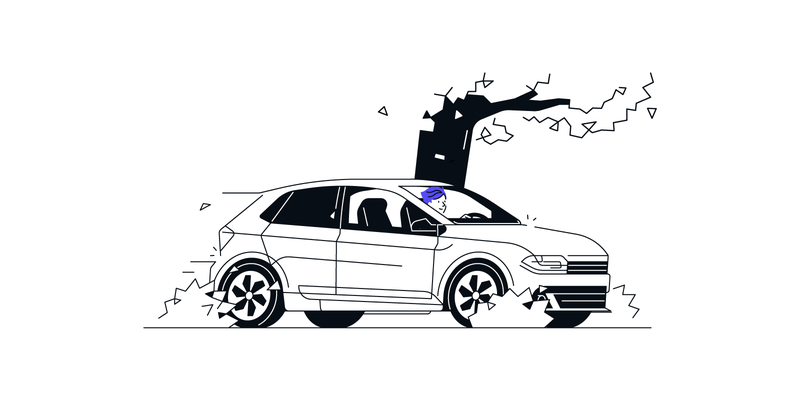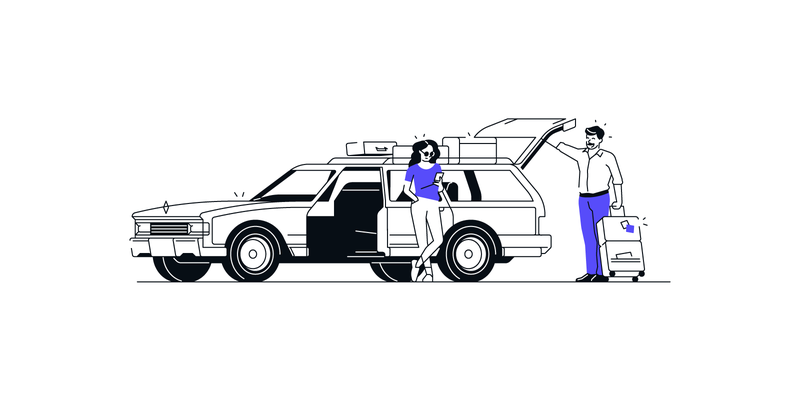Property insurance
Property insurance protects you, your home and your personal property against loss or damage. If you have coverage and your home is destroyed during a fire or a valuable collection of jewelry is stolen from your bedroom, your insurance provider would pay for necessary repairs and replace items damaged or stolen.
The most common types of property insurance are:

Home insurance
Homeowners insurance consists of five different primary coverage types: dwelling, other structures, personal property, personal liability and loss of use. Insurance can be defined by your type of property — a house vs. a condo — and whether you rent or own. There are additional elements to consider, as well, but here’s an overview of the main coverage types for homeowners.
Covers the replacement cost of your home. Typically, any part of your entire house or condo is covered, but only if it’s a part of the main building on the land. For example, a fire damaging part of the home or hail creating a hole in your roof would fall under dwelling coverage. If your home is fully destroyed, this coverage doesn’t necessarily replace the full value of the home, only what it costs to rebuild.
Coverage includes things like fencing, detached garages and sheds.
Covers personal belongings within the home itself, such as clothing, electronics and artwork.
Covers any injuries that occur to other people on your property, such as a fall or a faulty appliance causing a cut.
Pays for you to live elsewhere during the period of repair or rebuilding if your home experiences a covered loss and is considered unlivable. For example, if your house floods during a hurricane and is unfit to live, you could stay at a hotel for a set period of time.
Renters insurance
If you don’t own your home, renter’s insurance is an option for you. Renters insurance only covers your personal property and your liability for any damage you cause to other people or their property. For example, a dog biting your friend or a pipe bursting and damaging your downstairs neighbor’s ceiling would both be covered under your liability, which typically starts at $100,000. Many apartment complexes require renters insurance before allowing you to move in, and higher is typically better as far as the total coverage you get.
Condo insurance
Condo insurance is like a hybrid of homeowners and renters insurance. It’s a bit more extensive than renters insurance, particularly if you own your appliances or other elements within the home. Like renters insurance, condo insurance policies include personal property and liability coverage, as well as additional living expense insurance. Though it covers the parts of your home that you own, it typically doesn’t extend to the exteriors or shared living spaces that you don’t own.
Special circumstances
Depending on where you live, you may experience more major potentially damaging natural events. Insurance companies offer the ability to add on extra coverage for those situations.
Many home, renters and condo policies don’t include earthquake damage. But if you’re in an area that’s prone to a lot of earthquakes — even if you can’t feel them — it’s a good idea to add earthquake insurance, which will cover damage to your home, personal belongings and any additional expenses you may incur as a result of an earthquake.
While earthquake insurance is optional, most homes in flood-prone areas require flood insurance. Flood insurance, which is also not included in home, renters and condo insurance policies, will cover costs to rebuild a home or replace personal property in the event of a flood. You can see if you’re in a high-risk flood zone by checking the FEMA Flood Map Search Center.
Aside from earthquakes and floods, some other threats may not be covered by your property insurance. For example, mold, landslides or intentional acts — like breaking an old TV you have to get enough money to buy a new one — won’t fall on your insurance company. That also extends to actions that cause “expected or intended” bodily injury to the insured. So, just in case you’ve ever thought about destroying your home like a rock star tearing up a hotel room, know that you’ll be on the hook for the damages.
Additionally, your insurance company won’t cover damages caused by negligence or normal wear and tear. These categories include events like a bedbug infestation, sewer backup or an outdated water heater bursting and causing water damage to part of your home.
Property insurance can include many types of coverage but it will also exclude some. Learn how to read your homeowners insurance policy so you’re not left empty-handed after an incident.





